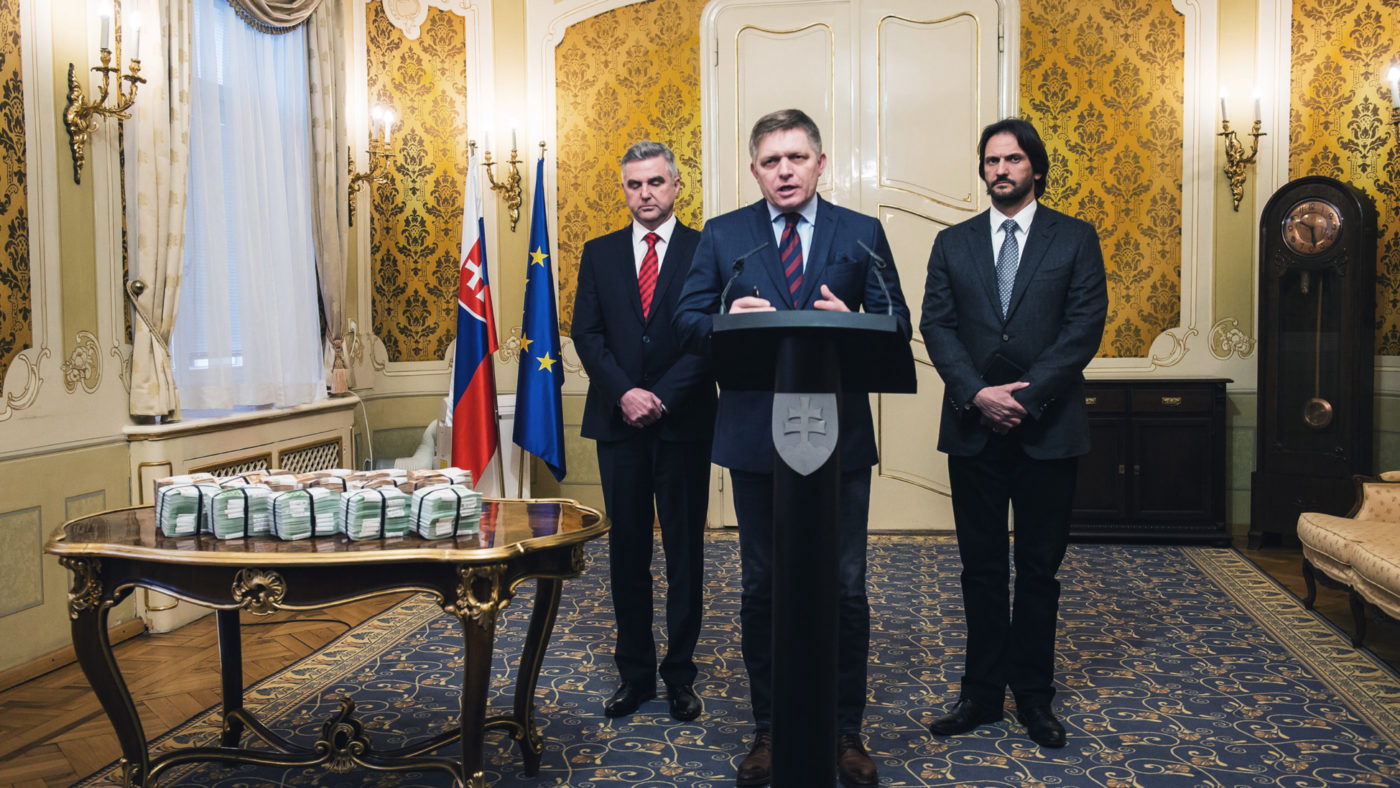Last October, I wrote about a landmark court case in which two former Slovak government ministers were found guilty of corruption and sentenced to many years in jail. I welcomed the apparent emergence of accountability in a country “whose public officials are renowned for lack of transparency,” but warned that the country’s progress toward the rule of law was not going to be easy. That, unfortunately, proved to be the case.
On February 25, the bodies of Jan Kuciak, a 27-year-old investigative journalist, and his fiancée, Martina Kusnirova, were found inside their modest home near the Slovak capital of Bratislava. The apparent assassination of a journalist – the first such act in Slovakia’s post-communist history – shocked the nation, prompting an outpouring of popular anger that is expected to lead to the resignation of a sitting Prime Minister and his cabinet today.
Political change in Slovakia is long overdue. At the very least, Premier Robert Fico stands accused of creating an environment of lawlessness, in which a murder of a journalist was deemed thinkable. At worst, he stands accused of being personally complicit in the double murder by surrounding himself with individuals linked to the underworld. The known facts make for very disturbing reading.
Kuciak had been a thorn in the side of the ruling socialists for years. He had previously written about organized tax fraud involving businesspeople close to the government. His last and unfinished article was published posthumously. Astonishingly, it linked a number of prominent government officials to the Italian mafia. The murdered journalist claimed that Italian businessmen with links to the Calabrian organized crime syndicate ‘Ndrangheta settled in Slovakia and spent years embezzling the EU’s structural and cohesion funds.
The government officials who have supposedly provided political and legal cover to the Italians included Viliam Jasan, a former socialist Member of the Slovak Parliament and the Secretary of the State Security Council, and Maria Troskova, a former nude model and “chief adviser” to Fico. In 2012, Troskova started a business venture with Antonino Vadala, a mafioso wanted by the Italian authorities. Vadala introduced Troskova to Jasan. Jasan, in turn, introduced the former Miss Universe contestant to Fico. Troskova and Fico, it is rumoured, are lovers.
To make matters even more complicated, Kuciak had previously reported on the shady business dealings of Miroslav Bodor, a businessman close to the ruling socialists, who happens to be a brother-in-law of the Slovak Police President Tibor Gaspar. Bodor is also related to Robert Krajmer, the head of the anti-corruption unit of the Slovak National Criminal Agency (NAKA). Both men are prominently involved in the investigation of Kuciak’s murder, raising questions about their impartiality.
In the days following the assassination, the oversight of the criminal investigation fell to Slovakia’s Minister of the Interior and Deputy Prime Minister, Robert Kalinak. Kalinak, who stands accused of corruption as outlined in my aforementioned article, happens to be a close friend and confidant of Fico. Paradoxically, it was Kalinak who was notionally responsible for preventing foreign criminal activity in Slovakia for close to a decade.
Needless to say, very few people in Slovakia trust Kalinak, Gaspar and Krajmer with solving the double murder, and tens of thousands of people took to the streets in what were the largest demonstrations since the collapse of communism to demand Kalinak’s resignation. The minister announced his decision to resign earlier this week, though, curiously, he never submitted his resignation to the Slovak President, Andrej Kiska.
In the meantime, one of Fico’s coalition partners got cold feet and threatened to withdraw from the government, unless the Prime Minister resigned as well. Threatened with the loss of his parliamentary majority, Fico offered to resign – if he can name his successor from the ranks of the ruling socialists. The current Parliament has two years to run, which should provide Fico and Kalinak with plenty of time to cover their tracks.
Not surprisingly, the opposition is apoplectic and demands an early election. Only a change of guard, Fico’s adversaries argue, can guarantee a thorough investigation of the crimes committed during the socialists’ tenure in office.
So, what are we to expect in the coming days? In the short term, it looks like the ruling coalition government will survive – under a new leadership. But the protests that shook the country are set to continue. The murders of a young journalist and his fiancee have exposed a criminal octopus, whose tentacles reach to the highest levels of government. Whatever happens to Fico and the people around him, Slovakia is facing years of political turbulence ahead.


